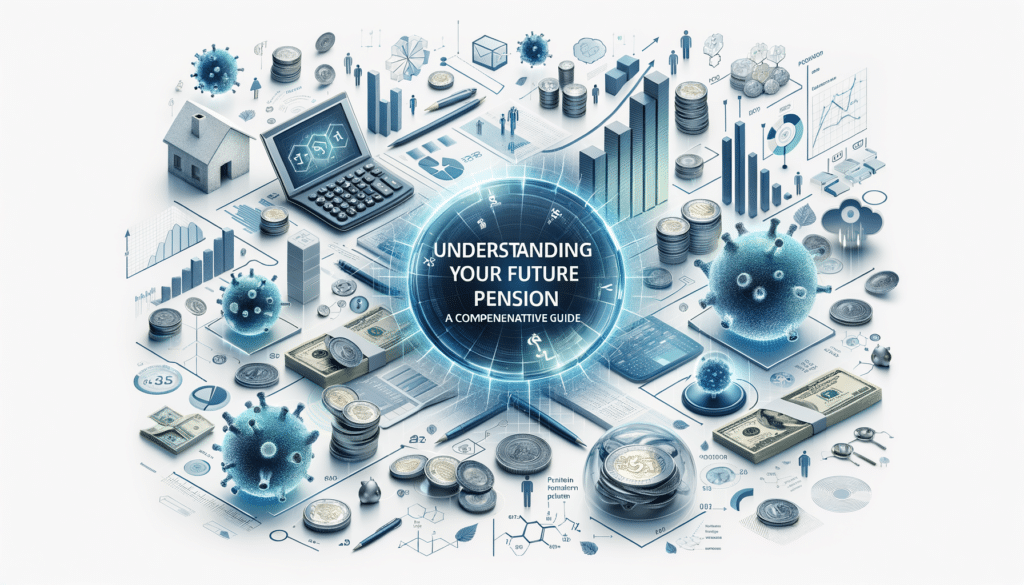Introduction to Pension Systems
Pension systems are critical components of social security frameworks, providing financial support to individuals during their retirement years. Understanding how these systems operate is crucial for anyone aiming to secure their financial future. Most countries have a structured approach to pensions, typically involving a combination of government, employer, and personal contributions. This section will delve into the basic principles of pension systems, highlighting their significance in modern society.
Globally, pension systems can vary significantly, but they generally fall into three main categories: state pensions, occupational pensions, and private pensions. Each type has its own funding mechanisms, eligibility criteria, and benefits structure. The state pension is usually funded through taxes and provides a basic income to retirees. Occupational pensions are employer-sponsored and often involve both employer and employee contributions. Private pensions, on the other hand, are personal savings plans that individuals can set up independently.
Key aspects of pension systems include:
- Funding Methods: Pay-as-you-go vs. funded systems
- Eligibility Requirements: Age, years of contribution, and residency
- Benefit Calculations: Based on salary history and contribution levels
Understanding these components is essential for making informed decisions about your retirement planning. As life expectancy increases and demographic changes occur, the sustainability and adequacy of pension systems continue to be a topic of significant concern and debate.
The Role of Government in Pension Provision
Governments play a pivotal role in the provision of pensions, ensuring that citizens have access to financial resources in their retirement years. This section explores how governments structure and fund pension systems, as well as the challenges they face in maintaining these systems. Government pensions are typically funded through taxation and are designed to provide a safety net for retirees.
One of the primary challenges for government pension systems is demographic change. As populations age and birth rates decline, the ratio of workers to retirees shrinks, putting pressure on pension funds. This has led many countries to reform their pension systems, raising retirement ages and adjusting benefit calculations to ensure sustainability.
Key government responsibilities in pension provision include:
- Regulation and Oversight: Ensuring fair and transparent management of pension funds
- Funding and Sustainability: Balancing contributions and payouts to maintain financial health
- Policy Reforms: Adapting to demographic and economic changes
Government involvement is crucial in setting the framework for pension systems, but individuals must also take personal responsibility for their retirement planning to ensure financial security.
Employer and Occupational Pensions
Employer-sponsored pension plans are an essential component of retirement income for many individuals. These plans, often referred to as occupational pensions, are typically funded through contributions from both the employer and the employee. This section examines the various types of employer pensions and their benefits.
Occupational pensions can be classified into two main types: defined benefit plans and defined contribution plans. Defined benefit plans promise a specific payout upon retirement, usually based on salary and years of service. In contrast, defined contribution plans do not guarantee a specific benefit level; instead, the payout depends on the contributions made and the investment performance of those contributions.
Benefits of employer pensions include:
- Tax Advantages: Contributions are often tax-deductible
- Employer Contributions: Additional funds to boost retirement savings
- Investment Growth: Potential for increased retirement income through investments
While employer pensions can significantly enhance retirement income, they also require careful management and planning to maximize their benefits.
Private Pension Plans and Personal Savings
Private pension plans and personal savings are critical for individuals seeking to supplement their retirement income beyond government and employer pensions. This section explores the various options available for personal retirement planning and savings.
Private pensions, such as individual retirement accounts (IRAs) or personal pension plans, allow individuals to save independently for retirement. These plans offer flexibility in investment choices and can provide significant tax advantages. Personal savings, including savings accounts and investment portfolios, also play a crucial role in retirement planning.
Key considerations for private pensions and savings include:
- Investment Strategies: Diversifying investments to manage risk and maximize returns
- Tax Implications: Understanding how taxes affect retirement savings and withdrawals
- Long-term Planning: Setting realistic goals and regularly reviewing retirement plans
By taking a proactive approach to personal savings and private pensions, individuals can enhance their financial security and enjoy a comfortable retirement.
Conclusion: Planning for a Secure Retirement
In conclusion, understanding the intricacies of pension systems is essential for anyone looking to secure their financial future. By exploring the roles of government, employers, and personal savings, individuals can make informed decisions about their retirement planning. As the global landscape of pensions continues to evolve, staying informed and proactive is key to ensuring a stable and comfortable retirement.
To summarize, effective pension planning involves:
- Understanding the different types of pension systems and their benefits
- Recognizing the role of government and employers in pension provision
- Taking personal responsibility for private pensions and savings
By integrating these elements into a comprehensive retirement strategy, individuals can achieve financial peace of mind in their later years.





